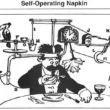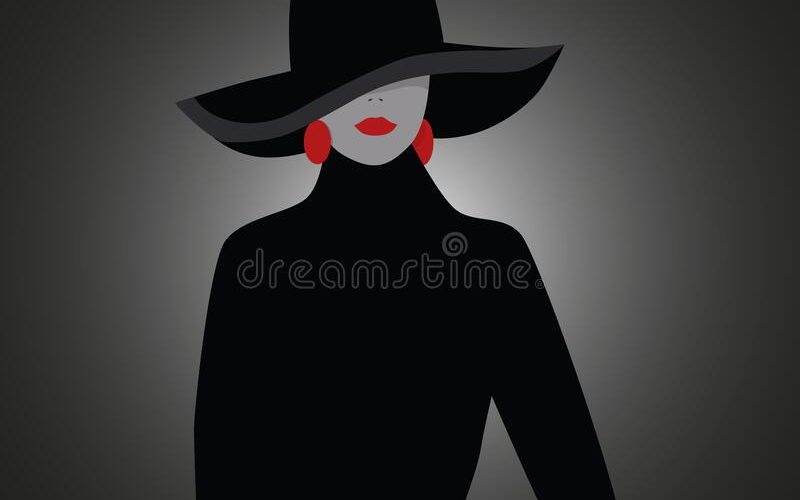I remember a few things about the strip of road, the hotel, the strip mall, and the bookstore, and much about the brunette.
It was the summer of 1990. I had returned from studying in England and was taking my third bicycle trip across country. I had ridden from San Diego to the center of Texas without taking a day off, sleeping rough or staying in the cheapest of cheap motels across the Southwest deserts, typically filled with migrant workers and their families at that time of year. My body had accumulated the normal assortment of scrapes, contusions, sprains, and sunburns that were normal on a trip of that length. Torrential rains in Texas that month along with the high winds that came with them left me creaking through the flat landscape barely holding a 10 MPH pace. Approaching San Antonio from the west I came upon a swanky hotel, an Omni or Westin, and deciding it was time for a mid-continent tune up of bicycle body and soul. I pulled into the hotel parking lot with the idea of a few days of healing of body, truing of wheels, and R&R.
There was a strip mall was a couple hundred yards west of the hotel, back in the direction from whence I had ridden, and the bookstore there had an attractive brunette of roughly my age, owlish glasses, with whom I found myself chatting as she stacked her put-away cart. When (perhaps from a desire to prolong the conversation rather than real curiosity) I asked her if she had a book recommendation to keep me busy for a few days, she with no hesitation reached onto the cart and picked up a book to hand me: Reality is Not What It Used to Be, by Walter Truitt Anderson, a Berkeley Professor. I did not know if she gave me it because she had read and appreciated it, or if it was simply the nearest book to her she could hand over to get rid of the strange guy dressed in Lycra with cleats on his bicycle shoes.
Not post-modern shit, I thought, anything but post-modern shit. I had completed an undergraduate degree in philosophy at Dartmouth without having to read one 20th century philosopher, let alone one who was “Continental”. “Continental philosophy” means philosophy that comes from the European Continent, and unlike its counterparts in British philosophy or American philosophy (which strive to be analytical, rigorous, and progress through careful arguments), Continental philosophy is laden with jargon in an attempt to sound profound. Later, from Stanford, I attended a Berkeley seminar of John Searle, who made fun of the jargon of Continental philosophers and who averred that the proper way to read such philosophy was never to study it, but only scan through it quickly as though one were reading a trashy summer romance. Later, in Britain, there had been no way to avoid Continental philosophy, so I bore with it when necessary but I could find nothing in it that looked like an argument. In fact, I had come to suspect all of Continental philosophy was what we would now call a LARP, a role-playing game where people put on the costumes and rehearsed the habits of the creatures they were posing as, but were actually engaging in meaningless word-play.
However, there in that bookstore west of San Antonio, the help had been requested, the brunette had responded, and it seemed churlish to reject a suggestion made with either total confidence or disdain. Plus, I was trying to get her to meet me for dinner (and I had to play against type by showing her I could read a book). So I accepted her suggestion and, acting excited, bought the book, deciding as I walked back to the hotel with it that I would try to read it, but with a new approach: I would read one and only one sentence of the jargon-laden prose, and not move on until I understood it. Then the next sentence. Then the next, never progressing until I had completely deciphered the meaning of the sentence. Maybe, I told myself, this shit will start making sense and being of some value to me.
Back in my hotel room I tried, and soon wanted to throw the book in the trash. Why must Continental philosophy be written so badly and with such jargon? I thought for the nth time. But after a few attempts, it started to make sense in a way postmodern philosophy had always denied me (perhaps because of the skill of the author). I remember the moment that it clicked, actually. Oh that is all he means? Then why didn’t he just say so? I began to understand that behind the obscurantist language, it was making assertions with which I could find sympathy.
My new friend and I enjoyed a couple dinners, movies, and discussions of her book recommendation. She clearly was testing me in asking me to discuss it with her, and so I did: The discussion is of “reality”, not in the scientific sense that a physicist might use, or in the everyday sense of “the tables and chairs around us,” but in the sense of “what is going on in the world,” and the assertion is that it is not as fixed as we imagine. We might tell ourselves that there are events transpiring in the world of politics,and imagine that there is a vantage point from which to observe those facts and declare the view from that spot as “the truth” which various press publications may depict with greater or lesser fidelity. We may think that there is some underlying reality of “what happened” that is just getting conveyed through these different points of view. But in actuality, the points of view are creating the reality. And the agents who are involved in the creation are not neutral, but themselves are doing the bidding of powerful forces.
Alone, floating in the hotel’s unique Jacuzzi (there was a spot it was five feet deep and created a whirlpool to spin around in), or sunning on the deck, I thought about this claim (hidden as it was in obscurantists’ jargon), and began getting more out of it. In truth, it is an idea whose lineage traces back to Karl Marx: “The ideas of the ruling class are in every epoch the ruling ideas, i.e. the class which is the ruling material force of society, is at the same time its ruling intellectual force” (The German Ideology, 1845). The postmodernist claim merely describes how that is done. How is it that the ideas of the ruling class become the “ruling ideas” of an epoch (as Marx claims)? Because the public’s “reality” is born out of a continuous social creation, and because some have a privileged position in that action, the fight is fixed. It is a clash, but the clash bends to the needs of the “ruling class”.
Fifteen years later I was to experience this most directly. In 2005-2008 I uncovered flaws in Wall Streets settlement system (because I was investigating something called “stock loan”). As I have catalogued elsewhere, in 2008 the world (begrudgingly) came to understand that I had been correct. In August 2008 the Associated Press reported, ““These days, when people talk of Byrne, the word ‘vindication’ comes up a lot.” In October 2008 Alan Greenspan gave testimony before Congress explaining the origin of the crisis, and he named what I had been jumping up and down about for three years (“settlement”). In the final days of 2008 a Wall Street Journal piece included me in a list of the five people who deserved credit for seeing it coming (among the other four were Nassim Taleb and Nouriel Rabini): “2008 Lookback: Best Calls of the Year” [WSJ]. By 2009 the media was openly acknowledging “Patrick Byrne Was Right All Along” (Charles Gasparino, CNBC) . Most gratifyingly, in 2017, in what may become our nation’s first trillion dollar lawsuit, a group of pension funds sued Wall Street for thieving from them using precisely the settlement flaws I had been describing a decade earlier (and note that just weeks ago the first of the defendants surrendered: Credit Suisse to Pay $81 Million to End Lending-Stock Suit ).
Throughout that process of vindication, I had a front row seat to the Marxian/post-modernist claim, and must say I found it to be 100% correct. I saw how a narrative (that our Wall Street system was fair) was in fact “socially created”. I watched the newscasters manufacture it, I saw the guilty corporations hiring Midwestern actors to reassure the public in dulcet tones about the integrity of our capital market, I saw the regulators come out and say that everything was going to be fixed…. I saw the sausage being made. The nutty Lefties were correct: I saw “reality” in the act of being “constructed”. It was not pretty and afterwards nothing ever looked normal to me again.
Events of the last 16 months have tuned this insight to a fine pitch. In an attempt to normalize what was a brazenly stolen election there has been a need for “the ruling class” to shape the ideas of this epoch, primary among them being that the victory of Joe Biden was authentic. That is the “reality” they must “create”. The challenge facing those seeking to make this true is that the evidence of the theft is ubiquitous and overwhelming. So much so, that only about 25% of Americans will tell a pollster they are confident Biden was legitimately elected. So in order to flog a crumbling narrative that it was “the cleanest election in history,” and to delegitimize any competing narrative, the truth must be ignored and/or smothered. This was admirably illustrated recently by Doug Bock Clark and PBS: Doug Bock Clark Goes Full Baghdad Bob (A Preview Review of Pro Publica’s C-Grade Propaganda) as well as Begging a Question Until It Bleeds: On “The Plot to Overturn the Election” (PBS, B-Grade). This is the normalization that we have seen since Friday, November 6, 2020: because the lie they are selling is (at this point) so obviously a lie, and the truth they are covering so obviously the truth, that they have to lay it on so thick. Since November 2020 we have seen them putting lipstick on this pig, but now they have to lay it on with a trowel.
The book finished and mailed home, my contusions healed, my wheels trued and panniers restocked, I parted ways with my new friend. Occasionally in the years that followed I returned to my frustration with Continental philosophers: as I read them I mentally rewrote their awful paragraphs into simple, clear assertions. Yet there is not a time I did so that I did not think of the quiet brunette with the big glasses in San Antonio, and what I had learned there.











Truth is not what you want it to be; it is what it is.
And you must bend to its power or live a lie.
Miyamoto Musashi
Why my heart belongs to Jaoan ..simple Shibumi
Dollars earning straightforward job to figure and earn on-line. begin now creating daily over $500 merely acting from home.~nh59~ Last month my earning from this are $16205 and that i gave this job solely two hours from my whole day. simplest way to earn additional financial gain online and it doesn’t desires any quite special experience. move to this web site without delay andfollow details to induce
started right now…… http://goodstartpay24.blogspot.com
Sounds like Tore Maras…..no, wait, she isn’t a quiet brunette!
It was Tore. It’s always Tore.
Like the time she had him under surveillance in that West London restaurant in 2012, a story she came up with after 24 hours of research. You gotta know your mark.
Lovely story. You are a talented writer, Patrick. Thank you for sharing it with us. I am from San Antonio; curious if this bookstore is still there. Perhaps the brunette, too…
Please forgive the directness, as I want to respect this space for commenting on your posts, but I know of no other way to share something important–I had an idea for a new kind of social media website–one purely for politics. It would be similar to Twitter, but with two different kinds of profiles; one for verified politicians or candidates, and the other for voters (like artists/fans). It would be a great, easy way for voters to be able to verify and vet politicians and candidates without having to go through the “reality filter” you wrote about in the above post. We could search for and interact one on one with them. Think Twitter meets LinkedIn meets Soundcloud. I have more details and would love to share, but I know you are insanely busy. Please email if you’d like to know more.
Thanks so much for your time. May God bless you for all the work you’re doing for us all…
And let’s not pretend the election deniers and Trump and and even Patrick Byrne aren’t creating their version of reality too.
I especially loved the line “the nutty Lefties were correct”.
Do you have a CIA handler? If so, did you meet her while in England? Did she give you a pencil with “Center for Strategic Studies” inscribed on it?
I finally figured out who you are. I was hoping you would get in touch.
This administration is collapsing daily. Even the liberal media has almost entirely thrown Joe under the bus. Hunters laptop could be the coup de grace. I dont know what is going to happen any more than the next man, but I believe what you believe, and I am quite certain that the truth will prove you correct. The real question is, will anyone listen this time when it finally becomes “reality?” Or will there be some other major event that has hypnotized the media and minds of people alike?
I still think the Jerry 3/1/80 show says it all about this mess
2nd set!
2nd set
A group of friends & I volunteered to answer phones at PBS for their funds drive in the late 90’s. Thats before I figured out PBS is like NPR & very LEFT